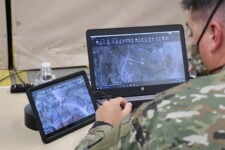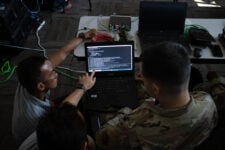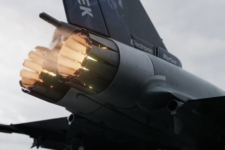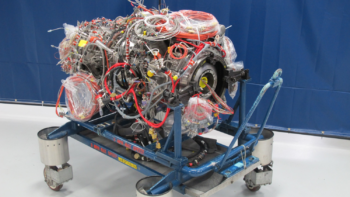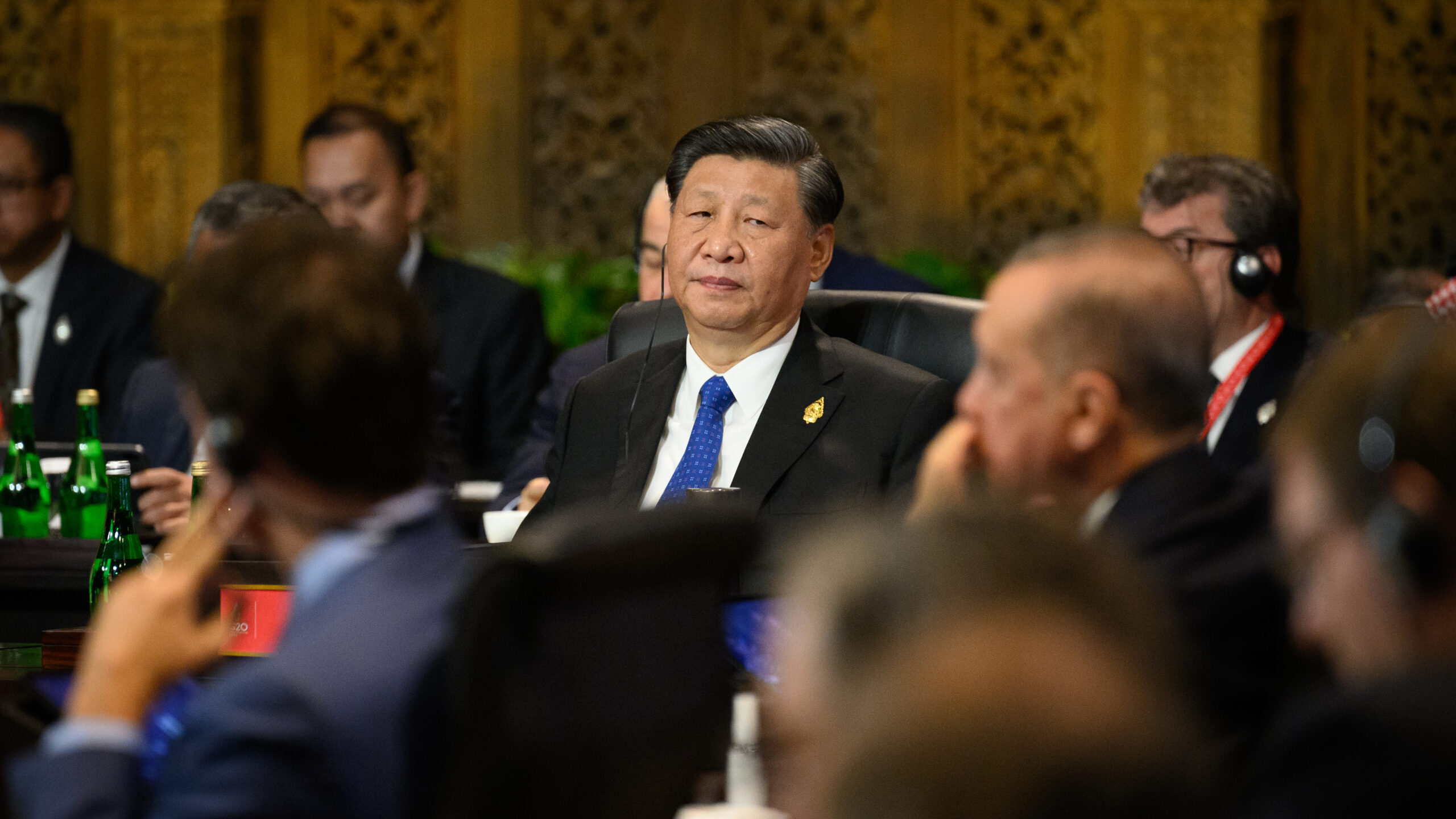
President Xi Jinping of China attends a working session on food and energy security during the G20 Summit on November 15, 2022 in Nusa Dua, Indonesia. (Photo by Leon Neal/Getty Images,)
WASHINGTON — In the wake of the US downing a suspected Chinese spy balloon off the coast of South Carolina, a key Defense Department official described a collapse in communications with Chinese officials from the top of military leadership down to working group levels — a breakdown that he said creates a dangerous situation as both powers step up military activity in the Indo-Pacific.
“These are the kinds of times that we need to be talking about what our intentions are, what our perspectives are,” Assistant Secretary of Defense for Indo-Pacific Security Affairs Ely Ratner said during a forum hosted by the Hudson Institute today.
Ratner was expanding on a previous Pentagon disclosure that Defense Secretary Lloyd Austin’s calls to his counterpart in Beijing went unanswered in the hours after the balloon was blown up by an F-22 Raptor.
It’s not the first time communications with Chinese officials have broken off in the long, strained history between Washington and Beijing, but Ratner suggested it was one of the most sweeping in recent years. Chinese officials have not picked up the phone for other top brass like Chairman of the Joint Chiefs of Staff Gen. Mark Milley and head of Indo-Pacific Command Adm. John Aquilino, Ratner said, adding that the problem now extends down to lower-level talks on political and military affairs.
“Some of our working-level dialogues that are meant to manage the [political-military] part of this, our [Deputy Assistant Secretary of Defense for China] Michael Chase’s dialogues as well as some of the operational dialogues INDOPACOM holds with the [People’s Liberation Army], they have turned all of that off for now. And we think that’s destabilizing and dangerous, and we think we both ought to be doing a better job of managing,” Ratner said.
RELATED: Balloons vs. satellites: Popping some misconceptions about capability and legality
The severed lines of communications come as the US seeks to strengthen deterrence in the Indo-Pacific by deepening military pacts with allies, efforts that Ratner said have so far culminated in a “breakthrough year” for partnerships in the region.
Among growing cooperation with countries like the Philippines, Japan and South Korea, he also said officials are “feeling quite good about making strong progress” on the AUKUS trilateral security agreement, adding that there will be “more capability flowing into the region” as Australia develops its nuclear submarine fleet.
The submarine deal is additionally helping officials to confront another pressing issue, according to Ratner: sharing intelligence with allies, which is often blocked by rules like Not Releasable to Foreign Nationals, or NOFORN, classification that foreign partners have long complained stifles cooperation.
RELATED: Naval intelligence admiral says ‘naive’ American public has a ‘China blindness’ problem
“AUKUS is a good example of that, where if it relates to technology sharing, yes, we need to change the way that we share technology with our partners,” he said, expressing confidence that officials are having “much better conversations… in a way that hasn’t happened previously.”
Deputy Assistant Secretary of Defense for South and Southeast Asia Lindsey Ford further emphasized the importance of documenting evidence of unsafe Chinese maneuvers and sharing it publicly, a tool she said has been essential for countries with fewer military capabilities to prevail in the “information war” that can emerge after an allegation of hazardous military activities.
“These kinds of unsafe operational behaviors carry real risks with them, and seeing something like an accidental incident because of unsafe behavior turning into a conflict is something we all want to avoid,” she said during the Hudson Institute event. “So that’s one of the reasons you hear us talking a lot about this right now.”











